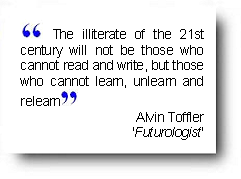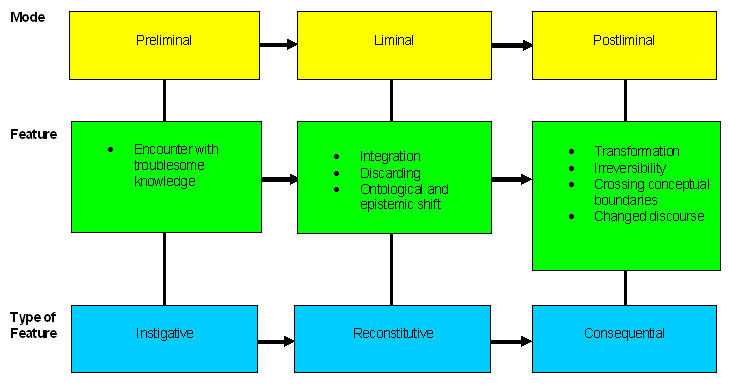Within the liminal state an integration of new knowledge occurs which requires a reconfiguring of
the learner’s prior conceptual schema and a letting go or discarding of any earlier
conceptual stance. This reconfiguration occasions an ontological and an epistemic
shift. The integration/reconfiguration and accompanying ontological/epistemic shift
can be seen as reconstitutive features of the threshold concept:
We would not, however, wish to imply that this relational view has an overly rigid sequential nature. It has been emphasised elsewhere (Land et al, 2005) that
the acquisition of threshold concepts often involves a degree of recursiveness, and
of oscillation, which would need to be layered across this simple diagram [move the cursor across the above figure].
Ray Land, Erik Meyer and Caroline Baillie (2010)
|

